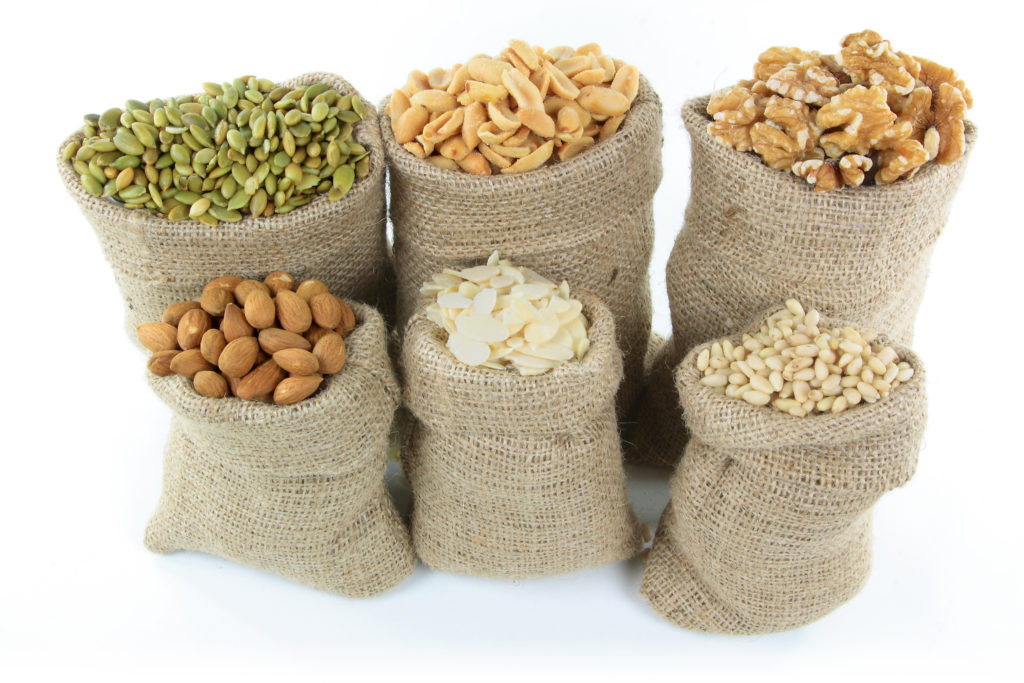Archive for March 2012
91-Year-Old Yoga Instructor Sets World Record
While B.K.S. Iyengar may still be teaching at 93, Guinness World Records has awarded the distinction of “oldest yoga instructor’ to Bernice Bates, a 91-year-old who instructs yoga at the Mainlands Retirement Community Center in Pinellas Park, Florida. Bates has been practicing and teaching hatha yoga since about 1960, according to Today.com. She currently offers a once-weekly hourlong yoga class that includes 10–12 poses and ends with relaxation. Personally, she practices several postures before getting out of bed every morning.
Read MoreUrban Zen Integrative Therapy Offered at UCLA
Demonstrating the growing popularity and acceptance of integrative therapies, the Ronald Reagan UCLA Medical Center in Los Angeles now offers the Urban Zen Integrative Therapy Program developed by fashion designer Donna Karan and facilitated by the Urban Zen Foundation. According to Gillian Cilibrasi, Urban Zen’s program director, UCLA medical professionals will be trained in yoga therapy, Reiki, essential oil therapy, nutrition and contemplative care.
Read MoreResearch Supports the Benefits of Pilates
There is strong evidence that Pilates improves flexibility and dynamic balance and moderate evidence that it can enhance muscular endurance, says a research review published in the Archives of Physical Medicine and Rehabilitation (2011; 92 [12], 2071–81). Researchers from two Portuguese universities and the University of Pittsburgh School of Nursing conducted the review.
Read MoreRewiring the Brain to Manage Pain
Two distinct mental strategies used to manage pain—focusing attention externally and re-appraising the pain—involve different brain pathways, according to new research using functional magnetic resonance imaging (fMRI). The study appeared in the journal Anesthesiology (2011, 115 [4], 844–51).
Read MoreRelaxation and Guided Imagery Techniques Improve Surgical Wound Healing
Brief training in relaxation and guided imagery techniques may help surgical patients experience faster healing, according to a study conducted at the University of Auckland, in New Zealand. Prior studies have shown that high stress levels can impair wound healing and that mental preparation of patients before surgery can reduce distress, pain, and time in hospital. Given this background, the University of Auckland researchers wanted to investigate whether a stress management intervention could improve surgical wound recovery.
Read MoreMidnight Chocolate Cake With Fudge Icing
We all need a little indulgence now and again to keep things balanced. With this recipe you can have your cake and eat it, too! IDEA member Cappie Geis—who is also a certified nutritionist and professional cooking instructor—specializes in recipe makeovers that replace key ingredients with healthy substitutes so as to cut calories and fat without sacrificing flavor. The unsweetened cocoa in this recipe adds an antioxidant kick that will satisfy your chocolate cravings and help chase away oxidative stress.
Read MoreNatural and Organic Products Growth Booming
Do you have stock in Apple®? What about in apples? Organic apples, that is.
Read MoreMaking Kids’ Food More Appetizing
Kids adopt their parents’ preferences on many fronts, but when it comes to how food is presented on a plate, children have definite opinions, and these impact what they eat. According to a study published in the January issue of Acta Paediatrica (101 [1], 61–66), the nut definitely falls far from the tree when it comes to plating.
Read MoreStoring, Handling and Reheating Leftovers
If your family doesn’t manage to devour the entire dinner you’ve prepared for them in one sitting, a very practical way to save yourself time in the kitchen and stretch dollars is to plan a meal or two more from your leftovers.
There is both an art and a science to the planning that ensures food will be fresh and delicious—as well as safe to eat—the second or even third time around.
Read MoreLet the FDA Hear Your Voice About Genetically Modified Foods
You probably already read food labels, but that won’t help you discern whether certain ingredients in a box or can are derived from genetically modified organisms (GMOs). As a health-minded individual, you’d probably like to make buying decisions based on that knowledge, but current U.S. Food and Drug Administration (FDA) policy doesn’t require genetically engineered foods to be labeled. Do you think this is important? Let us know your thoughts. Drop a comment to editor in chief Sandy Todd Webster at swebster@ideafit.com.
Read MoreFast Fact: Understanding Food Labels
According to the 2012 Nielsen report “Battle of the Bulge & Nutrition Labels: Healthy Eating Trends Around the World,” 59% of global consumers have difficulty understanding nutrition labels on food packaging. Fifty-two percent say they partially understand the labels, and 7% don’t grasp them at all. Forty-one percent of respondents “mostly” understand nutrition labels, down from 44% in a 2008 Nielsen report. Try polling your clients to see how much they understand about food labels. Maybe you can help with some basics.
Read MoreCocoa
Cocoa. Just the word conjures up steaming, frothy mugs of hot chocolate on a brisk day, or a delicate dusting of chocolate powder on a delightful dessert. Mmm. Besides satiating the pleasure centers of the brain, not to mention tickling the taste buds, cocoa offers physiological benefits. The powerful but small cacao bean, from which cocoa is derived, contains compounds called flavanols. Flavanols are found in other beneficial foods, such as tea and red wines; however, cocoa contains more flavanols per serving than either.
Read Moreappetizers
Steve Ritz and his students in the south Bronx grew more than 20,000 pounds of vegetables last year using state-of-the-art vertical gardening boxes and “green walls” as part of his Green Bronx Machine brainchild.
Read MoreA New Tack on Obesity
It might be time to shift the goal for obesity treatment away from just weight loss and body mass index to include fat reduction and a better understanding of nutrition science, say the authors of a Journal of the American Medical Association study (2012; 307 [1], 47–55).
Read MoreAre Plant Sterols Important to My Diet?
If you or your clients are concerned about lowering your blood cholesterol levels, you probably need to know more about plant sterols, also known as phytosterols. Plant sterols occur naturally in a host of foods—primarily soybean oil, nuts, seeds, legumes and some fruits and vegetables. Because plant sterols are chemically similar to cholesterol, the human body tends to absorb them and pass cholesterol out of the body as waste. The net result is that consuming foods rich in plant sterols can reduce the body’s blood cholesterol levels.
Read MoreWhole-Body Strength Training Using Myofascial Lines
Fascia has been enjoying the limelight in the fitness industry as one of the hottest topics in recent conference programming, workshops and publications. However, after the dust has settled, will fitness professionals still be scratching their heads and wondering, “Okay, great, it’s important, but what do I do with it? How does this affect my…
Read MoreWhole-Body Training: Warding Patterns
Observing sport is a great way to appreciate human structure and function. High-level athletes teach us a lot about optimal performance—and even dysfunction. Watching skilled athletic movement at the collegiate or professional level stimulates us to ask questions and scrutinize our existing training methods. This article identifies a need to introduce warding patterns as part of a well-balanced training and conditioning program. Practicing warding patterns elicits adaptations that are authentic to our physiology and can transfer to sports and daily activities.
Read MoreCompassion and Consideration for Curves
We have an inactivity epidemic. According to the World Health Organization (WHO), “Physical inactivity is the fourth leading risk factor for all global deaths, with 31% of the world’s population not physically active” (WHO 2011a). Physical inactivity is associated with 6% of deaths globally—behind only high blood pressure (13%), tobacco use (9%) and high blood glucose (6%) (WHO 2012; WHO 2011b). A 2009 WHO study found that physical inactivity was the leading cause of death in the United States.
Read MoreBeware of the “Office Feeder” & Workplace Weight Gain!
The workplace can be a minefield for people trying to shed pounds. Co-workers can unknowingly torpedo weight loss efforts. The seemingly endless office celebrations and corporate events provide a steady stream of sugary indulgence that can sabotage the most strident dieter’s efforts. Deskside chats can tempt the most health-conscious employee into mindlessly reaching into the ubiquitous desktop candy jar, spurring weight gain.
Read MoreOrganizing Your Boot Camp Business Launch
Before creating The Original Boot Camp, I spent many sleepless nights trying to figure out how to launch what would become Canada’s first fitness boot camp. Since I had no other business models to learn from, our operations procedure was based on trial, error and many sleepless, stressful nights of research. I’m happy to say my company has turned six-figure annual sales and found hundreds of contented customers since its 2001 debut, in addition to creating an incredibly rewarding career for yours truly. But man, I wished someone had told me back then what I’m about to tell you now.
Read More












